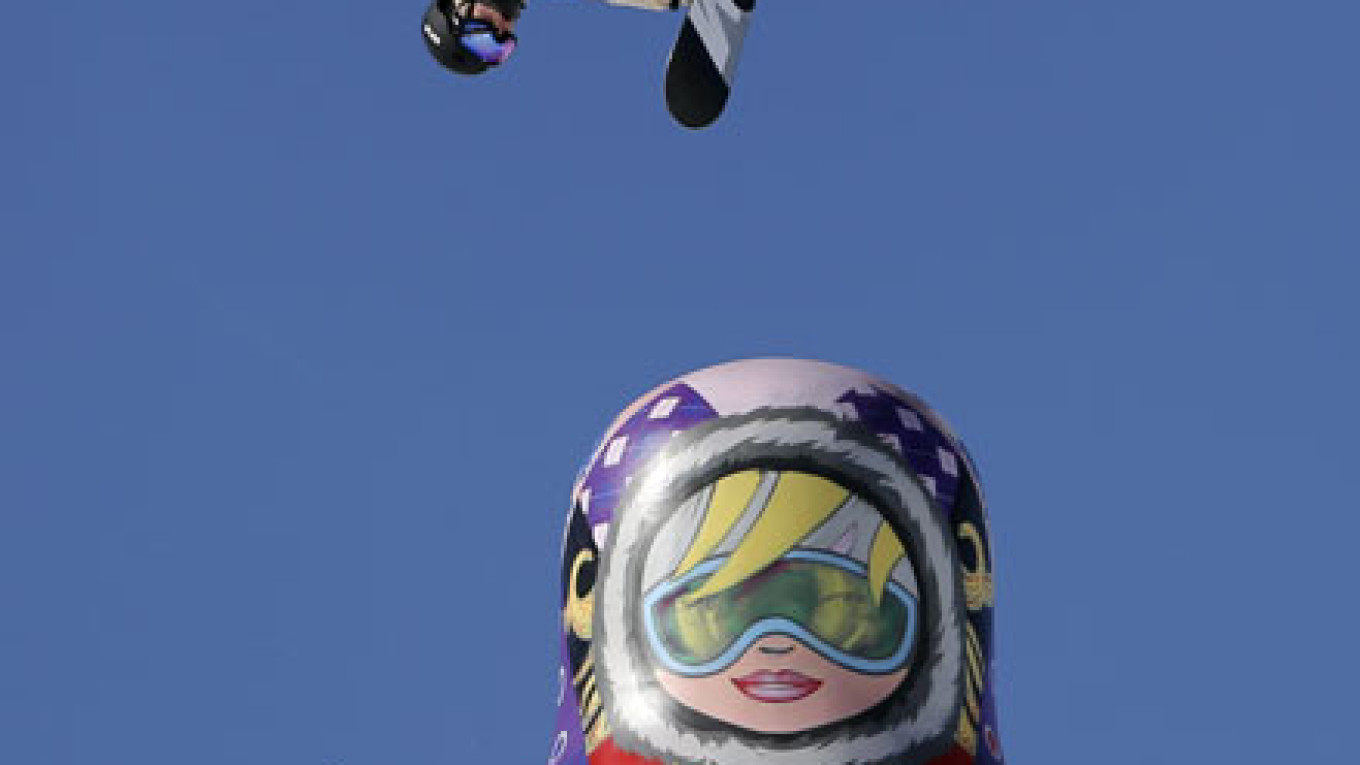SOCHI — As snowboarders and skiers flew through the Olympic snow in Sochi on the first day of sporting events Thursday, the organizers have attempted to respond to intensifying criticism of the first Winter Games in Russia.
In the wake of the Games, major opposition figures in Russia have accused the government of excessive expenditures that have yielded questionable results, which many have attributed to rampant corruption.
In an effort to respond to the criticism, Deputy Prime Minister Dmitry Kozak, the government's point man for Sochi Olympics, presided over a major news conference at the Main Press Center in the Olympic Park on Thursday.
"Our country, in shortest period, has fulfilled all the pledges we have made in the Sochi 2014 Olympic bid," said Kozak, who, according to many members of the organizing committee was "the ultimate force that made the whole thing ready on time."
He dismissed all allegations of corruption, pointing that "acts of corruption, acts of theft must be proved."
Kozak reiterated the government's official line that the state budget has only spent $3 billion on the Games, with "a bit more than $4 billion invested by private investors." "This is something we are proud of," he said. ?
Opposition leaders in Russia have repeatedly insisted that the government has spent more than $50 billion on the Games, citing a figure that includes the expenditures on general Sochi infrastructure, such as new highways, electricity grid and sewage system.
"If you take the Games in London, there the organizers did not have to spend a single kopek on the infrastructure as it was already there, but they decided to develop one of the most economically depressed areas of the city. We did something similar," Kozak said.
His remarks were then supported by Alexander Zhukov, president of Russia's National Olympic Committee, who said that the Sochi Olympics cost as much as the previous Winter Games in Vancouver.
"We recommend Olympic committees to be clear in their bids on how much they will spend on the venues and organization and how much on the other infrastructure," Zhukov said.
The government has created a special body that will oversee the post-Olympic development of Sochi, filling the newly built venues with events. The Olympic effort overall has created 60,000 jobs in the area, according to Kozak.
In central Sochi, crowds have funneled to central streets and squares to greet and cheer the Olympic torch that on Friday will reach its final destination in the middle of the Olympic park.
In the final dash before Friday's opening ceremony, luminaries like United Nations Secretary-General Ban Ki-moon, IOC President Thomas Bach, Foreign Minister Sergei Lavrov and Defense Minister Sergei Shoigu have all carried the Olympic torch.
With no specific mention of the situation in Russia, Ban Ki-moon condemned homophobia at the IOC session, saying that "hatred of any kind must have no place in the 21st century."
Answering the question about gay rights during the games Kozak said, "There will be no sexual discrimination during the Olympics."
"People can lead their private lives and also disseminate its advantages and attractiveness among adults. The main thing is to leave children alone," he said.
The issue of LGBT rights was one of the main bones of contention in the run up to the Games, with rights groups calling governments to boycott the Sochi Olympics.
Following recent terrorist attacks in Volgograd that claimed at least 41 lives, security became the dominant concern of the Games, with 62 percent of respondents citing security as the main reason why it was a bad decision to host Olympics in Sochi, according to Pew Research Center in the U.S. No margin of error was given for the poll.
Kozak has dismissed the threat, saying that the level of security in Sochi is "comparable to the one in Boston, New York, London and any other place in the world, as terrorist threats have no borders."
Following its selection in July 2007 as the host city of the Winter Olympics, Sochi spent seven years in a construction craze in order to prepare. The Olympics has been labeled a pivotal event for Russia's politics and economy, as well as its relationship with the West.
Contact the author at i.nechepureilnko@imedia.ru
A Message from The Moscow Times:
Dear readers,
We are facing unprecedented challenges. Russia's Prosecutor General's Office has designated The Moscow Times as an "undesirable" organization, criminalizing our work and putting our staff at risk of prosecution. This follows our earlier unjust labeling as a "foreign agent."
These actions are direct attempts to silence independent journalism in Russia. The authorities claim our work "discredits the decisions of the Russian leadership." We see things differently: we strive to provide accurate, unbiased reporting on Russia.
We, the journalists of The Moscow Times, refuse to be silenced. But to continue our work, we need your help.
Your support, no matter how small, makes a world of difference. If you can, please support us monthly starting from just $2. It's quick to set up, and every contribution makes a significant impact.
By supporting The Moscow Times, you're defending open, independent journalism in the face of repression. Thank you for standing with us.
Remind me later.


